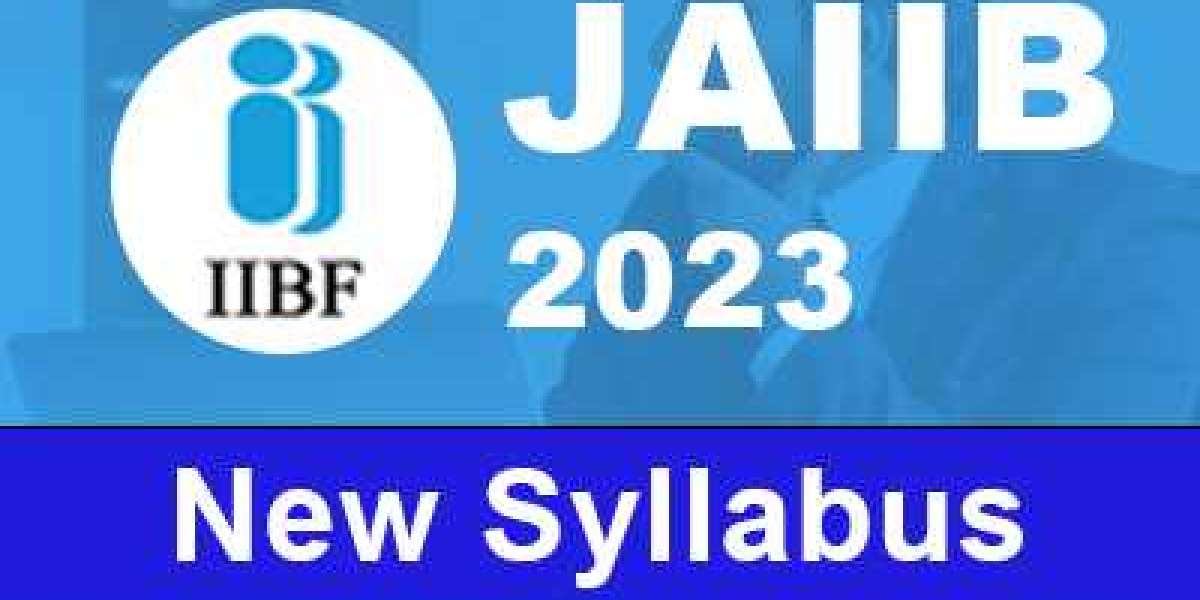The Junior Associate of Indian Institute of Bankers (JAIIB) is a prestigious certification program that holds immense value in the banking industry. Aspiring bankers and finance professionals across India set their sights on obtaining this qualification, as it not only enhances their knowledge but also opens up new career opportunities. To succeed in the JAIIB examinations, one must have a solid understanding of the syllabus and its intricacies. In this article, we will delve into the JAIIB syllabus, exploring its three key subjects and providing insights to help you navigate through your preparations effectively.
- Principles and Practices of Banking
The Principles and Practices of Banking is the foundational paper of the JAIIB syllabus. It covers a wide range of topics that are crucial for anyone aspiring to make a mark in the banking sector. The primary areas of focus in this subject include:
1.1. Indian Financial System: Understanding the structure and functioning of the Indian financial system is essential. Topics like the Reserve Bank of India (RBI), commercial banks, cooperative banks, and non-banking financial companies (NBFCs) are thoroughly covered.
1.2. Functions of Banks: This section delves into the various functions of banks, including credit creation, money transfer, and providing a safe haven for deposits.
1.3. Banking Technology: With the rapid advancement of technology, banks are heavily reliant on it. Understanding topics like electronic banking, digital payments, and core banking solutions is crucial.
1.4. Legal and Regulatory Aspects: This segment deals with the legal framework governing banking operations in India. Topics like the Banking Regulation Act, Negotiable Instruments Act, and Consumer Protection Act are covered in detail.
1.5. Commercial Laws: An understanding of laws related to banking and finance, such as the Contract Act and SARFAESI Act, is essential.
- Accounting and Finance for Bankers
The second paper in the JAIIB syllabus, Accounting and Finance for Bankers, focuses on building a strong foundation in financial concepts. Some key areas of study include:
2.1. Business Mathematics: This section introduces candidates to various mathematical concepts used in banking and finance, such as simple and compound interest, annuities, and discounting.
2.2. Financial Accounting: Understanding financial statements, including balance sheets, profit and loss statements, and cash flow statements, is vital for a banker's role.
2.3. Basic Accounting Concepts: Topics like accounting principles, conventions, and standards are covered to ensure a sound understanding of financial reporting.
2.4. Banking Operations: This section delves into the various banking operations, including loans and advances, asset liability management, and credit appraisal.
2.5. Risk Management: As risk is inherent in banking, this part of the syllabus explores risk management techniques, including credit risk, market risk, and operational risk.
- Legal and Regulatory Aspects of Banking
The third paper, Legal and Regulatory Aspects of Banking, is critical for bankers to ensure compliance and ethical practices. Key topics include:
3.1. Banking Regulation Act: A deep dive into the Banking Regulation Act, 1949, is essential to understand the legal framework governing banks in India.
3.2. Banker-Customer Relationship: Understanding the rights and responsibilities of banks and their customers is crucial in maintaining a healthy banking relationship.
3.3. Electronic Banking: With the rise of online banking, knowledge of the legal aspects surrounding electronic transactions and digital signatures is imperative.
3.4. Negotiable Instruments Act: An in-depth exploration of the Negotiable Instruments Act, including concepts related to promissory notes, bills of exchange, and cheques.
3.5. Prevention of Money Laundering: In an era of increased scrutiny, banks must be well-versed in anti-money laundering (AML) regulations and practices.
Conclusion
In conclusion, the JAIIB syllabus encompasses a comprehensive range of topics that are fundamental to the banking profession. Candidates who aim to excel in the JAIIB examinations must dedicate themselves to understanding the principles and practices of banking, accounting and finance, and the legal and regulatory aspects of banking. A strong grasp of these subjects not only boosts one's chances of passing the exams but also equips them with the knowledge and skills required for a successful banking career. With the right preparation and dedication, aspiring bankers can unlock new opportunities and elevate their careers in the dynamic world of banking and finance.
Read More: - https://www.myonlineprep.com/blog/articles/jaiib-new-syllabus-2023
Follow Us on Facebook: - https://www.facebook.com/myonlineprep/
Follow Us on Twitter: - https://twitter.com/myonlineprep
Follow Us on YouTube: - https://www.youtube.com/myonlineprep
Follow Us on Linkedin: - https://www.linkedin.com/company/myonlineprep/
Address: - Rafin Education India Pvt Ltd 405, Emarat Firdaus, Exhibition Road, Patna - 800006 (IN)
Call US: +91 92641 49917
Email US: - info@myonlineprep.com






